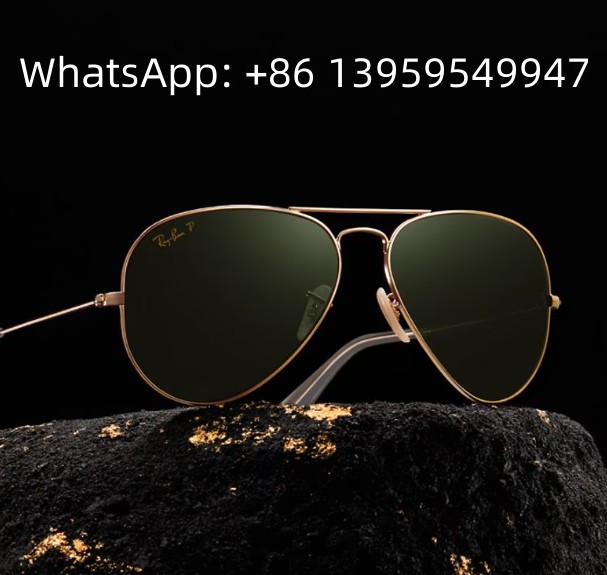In today’s fast-paced world, the allure of designer brands like Ray Ban is undeniable. Their iconic designs and reputation for quality make them a coveted accessory. However, for many, the high price tag can be a barrier. This has led to a booming market for fake Ray Ban sunglasses, which, while often frowned upon, can offer surprising lessons in value, authenticity, and personal growth.
A Lesson in Value Perception
Fake Ray Ban sunglasses, despite their lack of authenticity, provide an intriguing insight into how we perceive value. When individuals choose to purchase counterfeit items, they are often seeking the aesthetic and social status associated with the brand, without the financial burden.
The phenomenon underscores a significant lesson in value perception: people often equate outward appearances with intrinsic worth. The desire for social status and recognition can lead individuals to prioritize the appearance of luxury over the authenticity of their possessions.
Choosing to wear fake Ray Ban sunglasses might initially boost one’s sense of self-worth by providing an illusion of affluence. However, over time, this reliance on counterfeit items can erode self-esteem, as individuals may come to feel that they are not worthy of owning genuine products. This internal conflict highlights an important aspect of value perception: true self-worth is not derived from external symbols of status but from an authentic sense of self and integrity. Embracing authenticity in all aspects of life, including consumer choices, fosters a deeper, more resilient sense of self-worth and satisfaction.
Cultivating Awareness and Discernment
Encountering fake Ray Ban sunglasses can also serve as a practical lesson in awareness and discernment. By learning to identify genuine products from imitations, consumers become more informed and critical in their purchasing decisions. This skill is invaluable, extending beyond sunglasses to other aspects of life, encouraging a more thoughtful and discerning approach to consumption.
The prevalence of fake Ray Ban sunglasses in the market serves as a catalyst for developing critical thinking skills. Consumers must navigate a landscape rife with counterfeits, requiring them to question and verify the authenticity of their purchases. This critical approach is invaluable, as it sharpens the ability to analyze and assess information critically. The skills gained from discerning between fake and genuine items can be applied to various aspects of life, from evaluating news sources to making informed choices in personal and professional contexts.
Choosing to avoid fake Ray Ban sunglasses and opting for genuine products reflects a commitment to ethical consumerism. This decision is rooted in a broader understanding of the impacts of counterfeit goods, including their association with unethical labor practices and environmental harm. By prioritizing authentic products, consumers support brands that adhere to ethical standards and sustainable practices. This shift towards ethical consumerism demonstrates how awareness and discernment can lead to more responsible and impactful purchasing decisions, contributing to positive social and environmental change.
The Path to Authenticity
While fake Ray Ban sunglasses might fulfill a temporary desire for luxury, they often lead to a deeper appreciation for authenticity. Owning a counterfeit can eventually feel hollow, prompting individuals to seek genuine experiences and products. This journey from imitation to authenticity can foster personal growth, helping people understand the importance of integrity and genuine self-expression.
Choosing to move away from fake Ray Ban sunglasses involves recognizing the inherent value of genuine products. Authentic Ray Bans are renowned for their superior craftsmanship, durability, and design excellence. As individuals begin to appreciate these qualities, they develop a keener eye for what constitutes true quality. This shift in perspective is transformative, fostering a preference for products that offer lasting value and enhancing one’s overall sense of discernment. The pursuit of authenticity becomes a commitment to quality over mere appearance.
The decision to eschew fake Ray Ban sunglasses in favor of genuine ones also aligns with a commitment to ethical standards. Counterfeit goods often originate from exploitative labor conditions and environmentally harmful practices. By choosing authentic products, consumers support brands that adhere to ethical manufacturing processes and fair labor practices. This alignment with ethical standards reflects a broader desire to make responsible choices that positively impact the world. Thus, the path to authenticity is not just about personal integrity but also about contributing to a more just and sustainable global community.
Embracing Minimalism and Mindfulness
The temptation of fake Ray Ban sunglasses can also inspire a shift towards minimalism and mindfulness. Instead of accumulating numerous imitations, individuals may opt for fewer, high-quality items that truly resonate with their values and lifestyle. This minimalist approach reduces clutter, promotes sustainability, and enhances overall well-being by focusing on what truly matters.
Purchasing replica ray ban sunglasses without considering their origins or impact reflects a lack of mindfulness in consumption. Embracing mindfulness involves being fully aware of the implications of one’s purchases, including the environmental and ethical consequences. By choosing authentic products, consumers practice mindful consumption, taking into account the quality, sustainability, and ethical production of the items they buy. This shift towards mindfulness leads to more deliberate and responsible purchasing decisions, fostering a deeper connection to the items one owns and a greater appreciation for their true value.
The production and disposal of fake Ray Ban sunglasses contribute significantly to environmental pollution. Embracing minimalism reduces the demand for such counterfeits, thereby decreasing their environmental impact. Minimalism promotes the idea of “less is more,” encouraging individuals to buy fewer but higher-quality items that last longer. This approach not only reduces waste but also supports sustainable manufacturing practices. By choosing authentic, long-lasting products, consumers can minimize their environmental footprint and contribute to a healthier planet.

